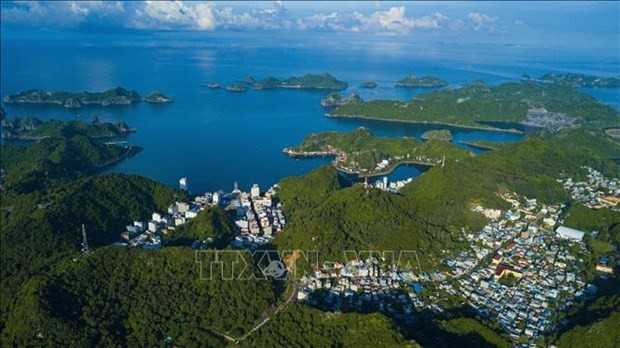
Sustainable development for Cat Ba Archipelago - a major concern for both local authorities and residents
Latest
 |
| A view of the Cat Ba Archipelago off the coast of the northern port city of Hai Phong. (Source: VNA) |
The Cat Ba Archipelago off the coast of the northern port city of Hai Phong is the largest limestone archipelago in the country, boasting over 360 islands, including Cat Ba Island to the south of Ha Long Bay. It was also recognised by UNESCO as a world biosphere reserve. Meanwhile, Ha Long Bay in the neighbouring province of Quang Ninh was named by UNESCO as a world heritage site twice in 1994 and 2000.
Former Vice Chairman of the Hai Phong People's Committee Associate Prof. Dr. Dan Duc Hiep said swift action following the UNESCO recognition is imperative.
He underscored the need to transform the Cat Ba tourist area into a high-quality, reputable coastal tourism hub that caters to the needs of both domestic and international travellers.
According to him, it is necessary to prioritise a number of projects, including those building the Cat Hai - Cat Ba cable car system and various entertainment and recreational facilities meeting international standards, as well as promoting environmental protection. Additionally, the city needs to adopt clean, eco-friendly transport methods on Cat Ba Island.
Hiep also stressed the urgency of developing an action plan and engaging in discussions with Quang Ninh authorities on the related investment and utilisation of the transport infrastructure and docking areas in the archipelago’s Lan Ha Bay.
In a meeting with local voters in early December, Deputy Prime Minister Tran Luu Quang highlighted the responsibility of local authorities and residents, as Vietnam is committed to strict adherence to international heritage conservation regulations.
He said the construction and development of tourism projects on these sites must comply with these regulations.













